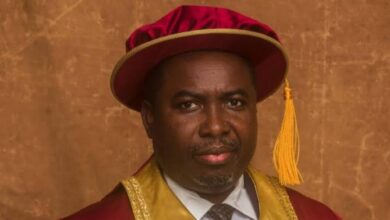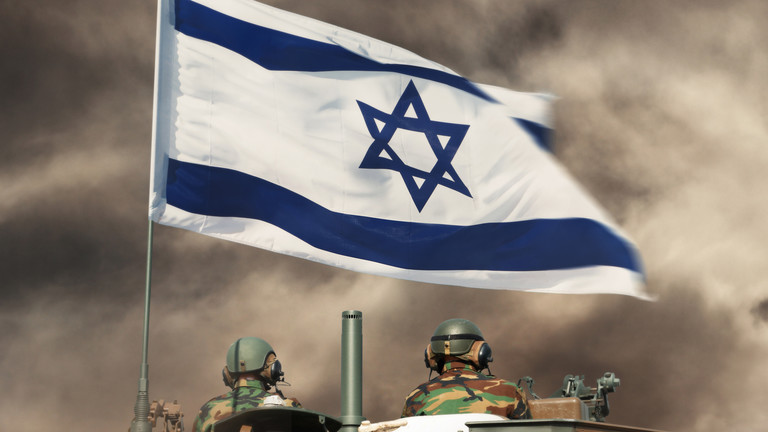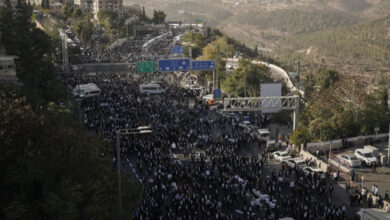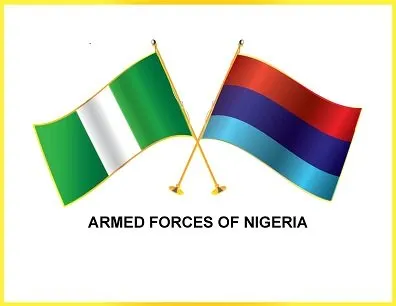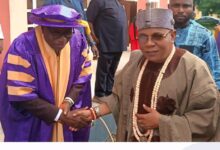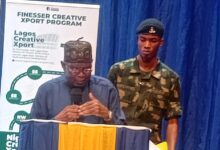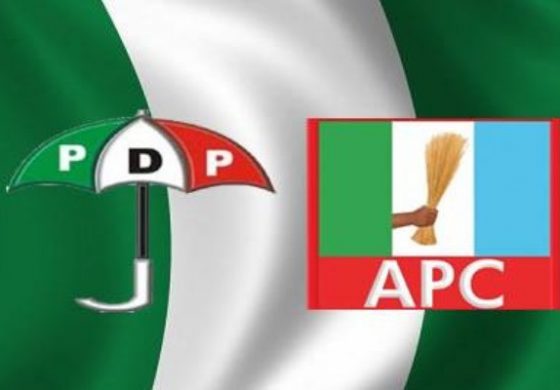The Kaduna crisis and our common humanity, by Nasir Ahmad El-Rufai

“I dare say that what is at stake is the question of citizenship and a common humanity. The Kaduna State government applies a policy of citizenship, anchored on residency in the State. This ensures that the rights granted by the constitution can be enjoyed wherever a citizen lives. The State Executive Council approved this focus on citizenship during our first term.”
Nigeria is a diverse country, and Kaduna State is one of the most diverse in the country. Our duty is to uphold a common citizenship, united in respect for the rule of law, equality of opportunity and promotion of the rights and liberties of everyone. We cannot allow our common humanity to be relegated and distorted by the obsession some of our compatriots have with identity politics which tend to divide rather than unite us.
Since last month the State government and security agencies have been working to contain an upsurge in violence and needless killings in parts of the State. We are deeply saddened by the loss of lives in a totally unnecessary frenzy of communal attacks, reprisals and revenge. While we mourn the dead, our immediate focus remains to stop the cycle of attacks and reprisals. We remain committed to ending the legacy of violence that has blighted the state for 40 years, needlessly taken many lives and curtailed the life chances of others.
Distinguished guests, you have heard from my colleagues and the security agencies regarding the security situation in the state overall, and in southern Kaduna. These briefings make the facts of the situation clear, including the immediate trigger of the current conflict and the steps that the Kaduna State government has taken, on its own and in collaboration with the Federal Government. You have heard directly the steps we are taking to manage the current situation, as well as the proactive action taken to prevent an eruption of violence.
The briefings represent our answer to the terrible avalanche of skewed narratives on the current crisis, ranging from outright lies about the nature of the conflict to baseless claims that the Kaduna State government is doing nothing to contain and resolve it. Part of the false narrative on the history of violent conflict in southern Kaduna is the loose use of terms like ‘land-grabbing’ and ‘genocide’. They are being used in this current cycle of conflict, just as they were in in the 2011/2015 and 2016/17 cycles.
We have requested and encouraged anybody to present evidence of any inch of land within Kaduna State that has been forcibly or illegally occupied. Were such a clear, physical and actual transgression to occur, it will constitute not only an injustice against the community displaced, but a challenge to the authority of the State within its territory that cannot be allowed to stand.
We challenge anyone to characterise or differentiate the communal clashes, attacks and killings in parts of Northern and Central Kaduna State, as well as in Zamfara, Katsina, Sokoto and Niger States from those in Southern Kaduna. Is it because in all the other cases, the victims are lesser humans or lacking in voice and media hype? What happened to our common humanity?
I will not repeat the detailed briefings you have received from our officials and the security agencies. Rather, I will run through the determined efforts this government has made since 2015 to stop violent conflict in southern Kaduna, address its causes and create a path for our diverse communities to live in peace and security.
We have been consistent in saying that beyond boots on the ground, military bases and police stations, the ultimate guarantee of peace is the willingness of communities to live in harmony and their resolve to settle differences through lawful means. Some people do not want to hear this because it imposes responsibilities on individuals and community leaders to keep the peace and obey the law, but it is the civilised way to go.
As governor, my first official action was to convene an emergency security meeting on May 30, 2015. This was prompted by reports of killings the previous day in Sanga, one of the eight local government areas in the southern Kaduna senatorial district. The outcome of that meeting was the setting up of a committee chaired by General Martin Luther Agwai to study and proffer ways to stamp out attacks in southern Kaduna, which had intensified since the violent aftermath of the 2011 elections. That emergency security meeting also decided to prepare a White Paper on the report of the Peace and Reconciliation Committee that had been established by the government of late Sir Patrick Yakowa, which was submitted since 2012 and has been gathering dust, while waiting for attention.
In 2015, we took action against the urban rascality of Sara-suka gangs and began to address the widespread problem of cattle rustling and other acts of rural banditry that were menacing many of our communities. We initiated contacts with other states in the North-West and Niger State to discuss joint military and police action in the Kamuku-Kuyambana forest range that straddles the concerned states. This resulted in a collaboration where the state governments funded military action against bandits then mostly engaged in cattle rustling and armed robbery in the Birnin-Gwari axis.
Given the sad episodes of violence that have occurred in Zangon-Kataf, especially in 1992 and 2011, it is especially saddening that the current outbreak of violence in parts of southern Kaduna was triggered by a clash over an unresolved farmland dispute in Zangon-Kataf on June 5. The clashes recurred on June 11 and it has brought avoidable casualties across all sides…
By early 2016, we took our efforts to build a constituency for peace across the state to another level, collaborating with the Plateau State government, the Gbong Gwong of Jos and the Geneva-based Centre for Humanitarian Dialogue. In southern Kaduna, we supported the process of the Kafanchan Peace Declaration as a community-led effort for sustainable peace. On Saturday, November 12, 2016, it was with optimism that we unveiled the Peace Apology billboard in Samaru-Kataf before we proceeded to the ceremony to present the staff of office to the new Agwatyap, His Highness Dominic Gambo Yahaya. The tenet of the Peace Apology was a call for mutual forgiveness and a dedication to peaceful means of resolving differences.
However, that optimism proved to be short-lived. The outbreak of sustained peace that we expected was soon shattered by a spiral of violence a few days later. We pushed for more security deployment and took the then weekly meeting of the State Security Council to Kafanchan on December 20, 2016, in a practical effort at solidarity with the people in a time of peril.
By early 2017, the Kaduna State government, working with the Federal Government, had answered the decades-old demand for an expanded, permanent security presence in southern Kaduna. The army established a base in Kafanchan, while the Kaduna State government bought an estate to accommodate a mobile police squadron. The Federal Government also extended the mandate of Operation Safe Haven, based in neighbouring Plateau State, to southern Kaduna and appointed a commander of the rank of a colonel to lead the sector, covering parts of area.
In September 2017, we established the Kaduna State Peace Commission to help encourage communities in our State to adopt peaceful means of resolving their differences. The Commission is chaired by Most Revd. Dr. Josiah Idowu-Fearon, former Anglican Archbishop of Kaduna and current secretary-general of the Anglican Communion. The executive vice-chairman, who runs the Peace Commission on a daily basis, is Priscilla Ankut, a lawyer who is well-known in the peace and conflict sector. Our confidence in the prospects for enduring concord among our communities led to the insertion of a five-year sunset clause in the law that created the Peace Commission.
Given the sad episodes of violence that have occurred in Zangon-Kataf, especially in 1992 and 2011, it is especially saddening that the current outbreak of violence in parts of southern Kaduna was triggered by a clash over an unresolved farmland dispute in Zangon-Kataf on June 5. The clashes recurred on June 11 and it has brought avoidable casualties across all sides of a communal conflict that complicates the criminal actions of bandits.
As part of the solution to this problem, the government has initiated a White Paper process on the reports of the 1992 Justice Rahila Cudjoe Commission of Inquiry and the 1995 AVM Usman Muazu Peace and Reconciliation Committee to address the procrastination of past governments on the disputed land and other key recommendations that required an official White Paper. We expect the committee drafting the White Paper to submit it shortly.
We will continue to support the security agencies to restore calm in the affected communities. Over the last five years, we have invested heavily in the security sector. We have consistently provided vehicles and other logistics support to the security agencies that are deployed in the state. We are also addressing the technology side of security, through the procurement of drones, the award of contracts to install CCTVs in phases in Kaduna, Kafanchan and Zaria metropolitan areas, build a command and control centre and establish a forensic laboratory.
Distinguished guests, the Kaduna State government is investing scarce human and financial resources and working hard for peace and security across the State. Bandits continue to menace communities everywhere, including in the northern and central parts of the State, killing with viciousness, kidnapping citizens and stealing their cattle and other valuables. In one night in February, Kerewa in Igabi Local Government Area lost 51 persons to these mindless bandits. These bandits continue to threaten communities in Birnin-Gwari, Giwa, Chikun and parts of Soba and Zaria LGAs, shooting farmers on their farms and spreading fear in the rural areas. People are being killed in similar criminal actions by bandits in Sokoto, Zamfara, Katsina and Niger States.
Nobody has trended a hashtag or video campaign on the suffering of these citizens because they don’t promote ethno-religious divisions. We should avoid creating the impression that pain and suffering matter to us only according to the tribe or faith of the afflicted. And we should corroborate and verify, not rush to trumpet the claims made by those with whom we share ethnic or religious affiliations.
I dare say that what is at stake is the question of citizenship and a common humanity. The Kaduna State government applies a policy of citizenship, anchored on residency in the State. This ensures that the rights granted by the constitution can be enjoyed wherever a citizen lives. The State Executive Council approved this focus on citizenship during our first term.
In 2017, I requested in writing that the Federal Government should declare these bandits as insurgents and authorise the air force to bomb them, in combination with action on the ground by the army and other security agencies. Since the beginning of 2020, we have seen waves of the bombardment of bandit hideouts by the Nigerian Air Force and various operations by the Nigerian Army, the Police and other security agencies against these criminal elements.
Distinguished guests, this is a battle that requires a common front of good people from everywhere against the criminals from anywhere. There is no point sectionalising, religionising or ethnicising security challenges, even though they may have different local inflections. There should be an equality of concern for all lives, no matter their ethnic origins or religious beliefs. There should be an equality of concern for the rights of all persons to live in peace and security everywhere, in strict obedience to the law and civilised norms.
Nigeria is a diverse country, and Kaduna State is one of the most diverse in the country. Our duty is to uphold a common citizenship, united in respect for the rule of law, equality of opportunity and promotion of the rights and liberties of everyone. We cannot allow our common humanity to be relegated and distorted by the obsession some of our compatriots have with identity politics which tend to divide rather than unite us.
I dare say that what is at stake is the question of citizenship and a common humanity. The Kaduna State government applies a policy of citizenship, anchored on residency in the State. This ensures that the rights granted by the constitution can be enjoyed wherever a citizen lives. The State Executive Council approved this focus on citizenship during our first term This is the 21st Century, but some people do not want to see others as human beings and fellow citizens. This cannot be allowed. Fidelity to the concept of a common humanity obliges us to see other human beings primarily as our own people too. Their other identities as Christians or Muslims or their ethnic ties are secondary to their core humanity. Let us uphold this banner of a common humanity and promote the right of all to life, liberty and livelihood.
Ours is a government that promotes and robustly defends equality of opportunity. We have taken consequential decisions to advance the interests of our people. We have invested in human capital, strengthening our health system and our schools. We have reformed governance, reducing waste and prioritising capital spending. Our budgets consistently have a 60:40 capital to recurrent ratio. We raised N44 billion in internally generated revenue (IGR) in 2019, a record in the history of the State and a far cry from the N13 billion that was recorded in 2015. When we took office in 2015, we reduced ministries from 19 to 13 and started with only 13 commissioners, whereas our predecessor had 24.
We took the tough decision to sack 21,780 primary school teachers for failing a competency test, but we replaced them with 25,000 new ones. Our recruitment process is transparent and is based on merit. People from other States consistently apply and are appointed if they meet the standards. We invest in youth through programmes like the Kashim Ibrahim Fellowship and Kaduna Start-Up and Entrepreneurship Programme (KADSTEP), apart from appointing many youths into the government. We have implemented a robust public service reform programme.
Our efforts have been recognised. Kaduna State is ranked Number One for Ease of Doing Business. We have attracted more foreign direct and domestic investment and continue to invest in expanding infrastructure to make life easier for citizens and businesses. These are benefits for all residents, across the State and without partisan, religious or ethnic discrimination.
Distinguished guests, by your training you know better than I do that our faiths are meant to help us to be better human beings, as we worship God and let His light shine in our lives. No one can be wiser than Almighty God who has permitted to humanity a diversity of faith and cultures. Faith should not be a reason to seek to destroy others. Neither should it be a bargaining chip. I appeal to you to help us push our compatriots in the path of letting our faiths incline us to be better citizens.
Once again, on behalf of the government and people of Kaduna State, I thank you all for this visit, and hope you will return to Kaduna again under different, happier circumstances soon. I have listened very carefully to the recommendations and eight-point requests of His Eminence, Rev (Dr.) Samson Ayokunle. His Eminence has already noted that some of these recommendations are already being implemented. We need to do more. We look forward to working with you in constructive endeavours to deliver peace, security and better life chances for all our people.
*Nasir Ahmad El-Rufai (OFR) is governor of Kaduna State.


